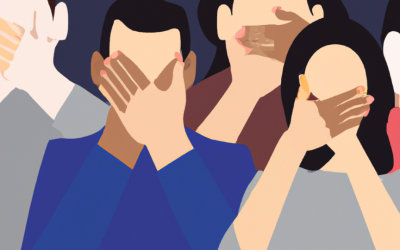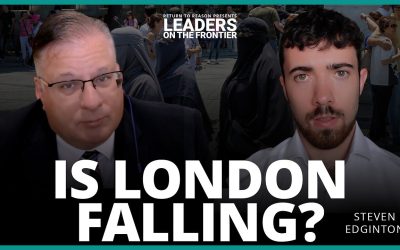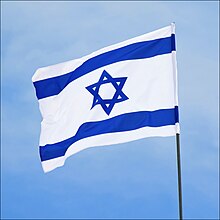Frontier Centre: I would like you to tell us a little bit about what is ‘Honour-based violence’?
Aruna Papp: Honour based violence is a crime committed in the name of protecting or defending family honour. It is usually committed by family members who believe that through their action the victim has shamed, disgraced or brought dishonor to the family or the community. The majority of the time the murders are fathers, bothers or uncles of the victims. There have been cases of mothers or older sisters committing these crimes as well. In many immigrant communities masculinity is intertwined with the notion of honour. It may be the honour of an individual man, a family or the community. This honour is fundamentally linked with policing and controlling the sexuality of the women in the family. Therefore, honour based crimes are motivated by desire to protect the family name and honour..
While there is great cultural, educational and socio-economic diversity among the immigrant groups, the one thing which is common is the patriarch family structure where the male is the head of the family. The male, the patriarchal of the family believes that it is his responsibility to make sure that women in that family do not bring disgrace or dishonor to the family name or to the Patriarch’s name.
In Canada what is happening is that young girls are attending school. They are learning that they have a right to make decisions about their schooling, career, friends and marriage partners. They also learn from their peers and television that other children in the Canadian societies have more freedom than they do. When a girl challenges the authority of the patriarch or questions their decision her actions are seen as bringing dishonor to the family name. Between1954-1983 there were 3 honour killings in Canada and between 1983-1990 there have been 12. however, since 1999 there have been at least half a dozen more cases of honour killings. There are at least two cases of honour killings being processed in Canadian courts right now. Honour killing in Canada is on the rise. In my opinion honour killings is just the tip of the iceberg, honour based violence is epidemic.
FC: Some people might say that this is a problem that
is probably relegated to small ethnic communities in the country, why make a big deal about it or why should Canadians be interested?
AP: Firstly, this is not ‘an immigrant problem’ this is a Canadian problem. The girls who are being killed and terrorized in their homes are Canadian women and children. They are Canadian citizens. They have the right to be safe. They have the right to live and prosper in a safe environment just like any other child in this country. These children also go to school with your children and are friends with your children. When one of them disappears or is taken to the old country and married off it impacts the whole community. These women and children are unable to protect themselves; it is our responsibility protects them. Those of us who have a voice need to speak out against these horrible crimes. These women deserve to be protected. These crimes are a violation of their Human Rights. They are entitled to ‘Human Rights legislation to which Canada is a signatory.’ As a nation Canada is viewed as peace keeper around the world. We are out there protecting the vulnerable globally; we need to protect the vulnerable in our neighborhood as well.
FC: You have recently written a book. The book is entitled ‘Unworthy Creature: A Punjabi Daughter’s Memoir of Honour, Shame and Love. You are here in Calgary today and in Edmonton in two days, in part to launch this book. Can you tell us a little bit about your book and why Canadians should read this book?
AP: I grew up in India. My father was a Punjabi, Christian Pastor in the Seventh-day Adventist Church with six daughters. Eventually he did have a son but that did not take away the fear and the awareness that we girls were a curse on the household.
I know what it feels like to grow up in a family where an honour code is practiced. I was around five years old when I learned that me and my sister could be done away with just because we were females. It was a common thing in India.
Neighbours would stop by to empathize with my father’s mother about having so many granddaughters and she would respond by saying that at one of these days she was going to start throwing us in the well, one by one, to free her beloved son of the curse. By the time I was 8 I had seen 2 newborn females on the garbage pile. I knew my grandmother could carry out her threats and she would get away with it. That kind of fear, which is instilled in a child at an early age, never goes away and it has impacted every aspect of my life until today.
I have been working with immigrant women who are victims of abuse for the past 30 years and I found that many of the harmful cultural practices are transported to Canada. These practices include forced marriages, child marriages, female genital mutilations, marriages to cousins, dowry related abuse. The list is quite long. Young girls and women are being terrorized in many homes by their families.
When these young girls start to challenge their oppressors they are confined to their rooms, starved, not allowed to attend school or have contact with anyone outside the family and if that does not work they are being sent to the old country and forced marry men they have never met before often these men are much older than the girls.
The reason I wrote this book is that many service providers do not understand what is meant by honour based violence, or how it is manifested or what the role of culture and religion is on this kind of violence. They do not understand what is meant by honour in the cultural context. They do not have any tools to assess the risk and the danger to these women’s lives. They do not understand shame the way many ethnic families practice it. I travelled around the country conducting workshops for line service providers. These people are trained in their professions, but there still seems to be gaps in bridging the cultural barriers. I found that even the ‘social work’ language commonly taught in universities is not appropriate. There are several different words for honour in India and each one of them means something different in the cultural context but in English there is only one word. I hope that this book would provide a glimmer into what happens behind closed doors. What it feels like to live in the fear of being the one who brings dishonor to the family.
Like everybody else, I do not enjoy washing my dirty laundry in public but it had to be done so that professionals in the community and the public generally will understand the challenges some women have to face on a daily basis. I also hope that this book will start a discussion and that we, as a community, will then start talking about prevention and how to save young lives.
It took a lot of soul searching for me to write this book and I was fully aware of the repercussions of writing this book. If one thinks about this book in terms of ‘bringing dishonor to the family, I have in deed brought a great dishonor by writing my memoirs and there are tremendous repercussions.
However, when I receive emails from young girls asking me to help because they heard me on the radio or someone told them about my work and when I am able to help I know that I did the right thing in writing this book. As well, when service providers attend my workshops and send me emails to tell me about what they have learnt that is very rewarding. This tells me that my efforts have been worth it. It is helping a lot of people.
However, there are also some very powerful people who want me to stop this advocacy work. There are those who feel that this violence should not be named honour based violence because it perpetuates racism and stereotypes certain communities. They feel that it makes certain communities look backward. This should all be thrown in the same bucket and referred to as ‘domestic violence’ and when fathers kill their daughters because they want to wear make-up this should be viewed as ‘extreme cases of child abuse.
Honour based violence differs from domestic violence. In my workshops I discuss 34 points how honour based violence is different than domestic violence. This morning I received an email from England. A woman wrote that she was reading my book for the third time and each time she read it she found that she was learning new things about how honour base violence in rooted in cultural values. That means the book resonated with her. She too had lived through similar abuse but did not have the words to express what she had survived. She is sharing the book with other women. We need to talk about this hidden problem so that we can work on prevention.
FC: Aruna, you’ve done a great deal already in trying to expose the issue of honour based violence and to shed to light on a very complex problem. In your mind’s eye, where do you think things should go? What and How can Canadians deal with this problem?
AP: I think since the Shafia trial, Canadians have become more aware that honour-based violence and honour killings are here in our backyard and they are on the rise. It is difficult to deny that. But people are afraid to talk about it because they feel they will be labeled as racist or perpetuating and stereotyping racism. This is what was happening in the UK for three decades. Then the women advocated and the community got together and said not having a discussion on this subject, not having resources, not having policies and laws that protect immigrant women is the greatest racism. Until we discuss this problem openly we cannot find way to prevent this from happening. In UK there are 12 to 14 honour killings a year. Honour Killing are on the rise in Canada as well. It is now documented. Let’s start the discussion from there.
We also need to work with frontline workers. We need to make sure that social workers, police services, children’s aid workers, health care workers and teachers are trained and educated about what honour based violence is and how it is manifested in homes where honour codes are the norm. They need to know what are the red flags, what are the triggers. We need to make sure that the victims are aware of their rights and the communities are educated about the laws of this country. We need shelter for these women and young girls. Often they are sent to youth shelters where other clients are in conflict with the law, using drugs or alcohol. They are street smart whereas these girls come from sheltered backgrounds. It becomes a case of ‘from the frying pan into the fire.” These girls need to be in a different environment. We do not have appropriate shelters for them… We also need to have resources in the community that for work with men. At present they are mandated by courts to attend counseling. The majority of time counseling is not culturally appropriate and it results in an escalation of abuse in the family.
FC: Thank you very much. We appreciate you coming to visit us in Calgary and it’s good to have you here.
Read in PDF format here.



